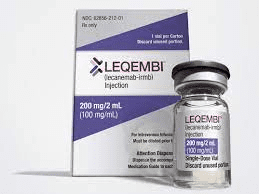Lecanemab receives unanimous FDA approval as a therapy for Alzheimer’s, giving millions of people hope
The Food and Drug Administration (FDA) panel’s unanimous support for the use of lecanemab (Leqembi) to halt the spread of the crippling illness represents a significant advance in Alzheimer’s therapy. Lecanemab’s clinical trial outcomes were praised as “robust” and “clear and consistent” by professionals, providing a ray of hope for the estimated 6.5 million people living with Alzheimer’s.
Lecanemab has advanced significantly through the FDA’s expedited approval procedure on the way to receiving full FDA clearance, which is expected on July 6. To its coverage, the Centres for Medicare and Medicaid Services (CMS) have nonetheless included a stipulation. Patients who sign up for a yet-to-be-created national registry will be the only ones whose medications are covered by them. Patients, physicians, and carers are concerned about this since they don’t know how long the registration procedure will take.
The Alzheimer’s Association is vehemently opposed to this CMS regulation. They think it is unneeded and could make it more difficult for people with Alzheimer’s to get Medicare coverage. According to the group, people with Alzheimer’s should have unfettered access to FDA-approved treatments just as those with HIV/AIDS, cancer, and heart disease do. They think that everyone should have equal access to these medicines that might alter their lives.
These coverage delays and limitations have long-term financial repercussions in addition to the human cost. Effective Alzheimer’s and dementia medications, according to University of Chicago researchers, may save public payers between $13.1 billion to $545.6 billion in healthcare expenses over a 17-year period.
The Department of Veterans Affairs (VA) has already agreed to use lecanemab for patients within the VA system, despite the CMS’s misgivings. Lecanemab showed in clinical studies to delay cognitive deterioration in those with moderate cognitive impairment or Alzheimer’s dementia by 27% compared to placebo-treated people. Additionally, the medication seemed to have the potential to improve patients’ ability to do everyday chores like dressing and eating oneself.
Lecanemab does, however, have certain undesirable side effects, such as infusion site responses and amyloid-related imaging abnormalities (ARIA), which are characterised by swollen brain tissue. Lecanemab’s current label emphasises the need of clinicians monitoring patients using MRI images to detect ARIA symptoms.
The latter stages of Alzheimer’s disease may cause significant loss of brain function, dehydration, starvation, and deadly infections. There is presently no known treatment for the condition. Lecanemab’s approval gives patients and their families newfound hope in the fight against this deadly illness.







